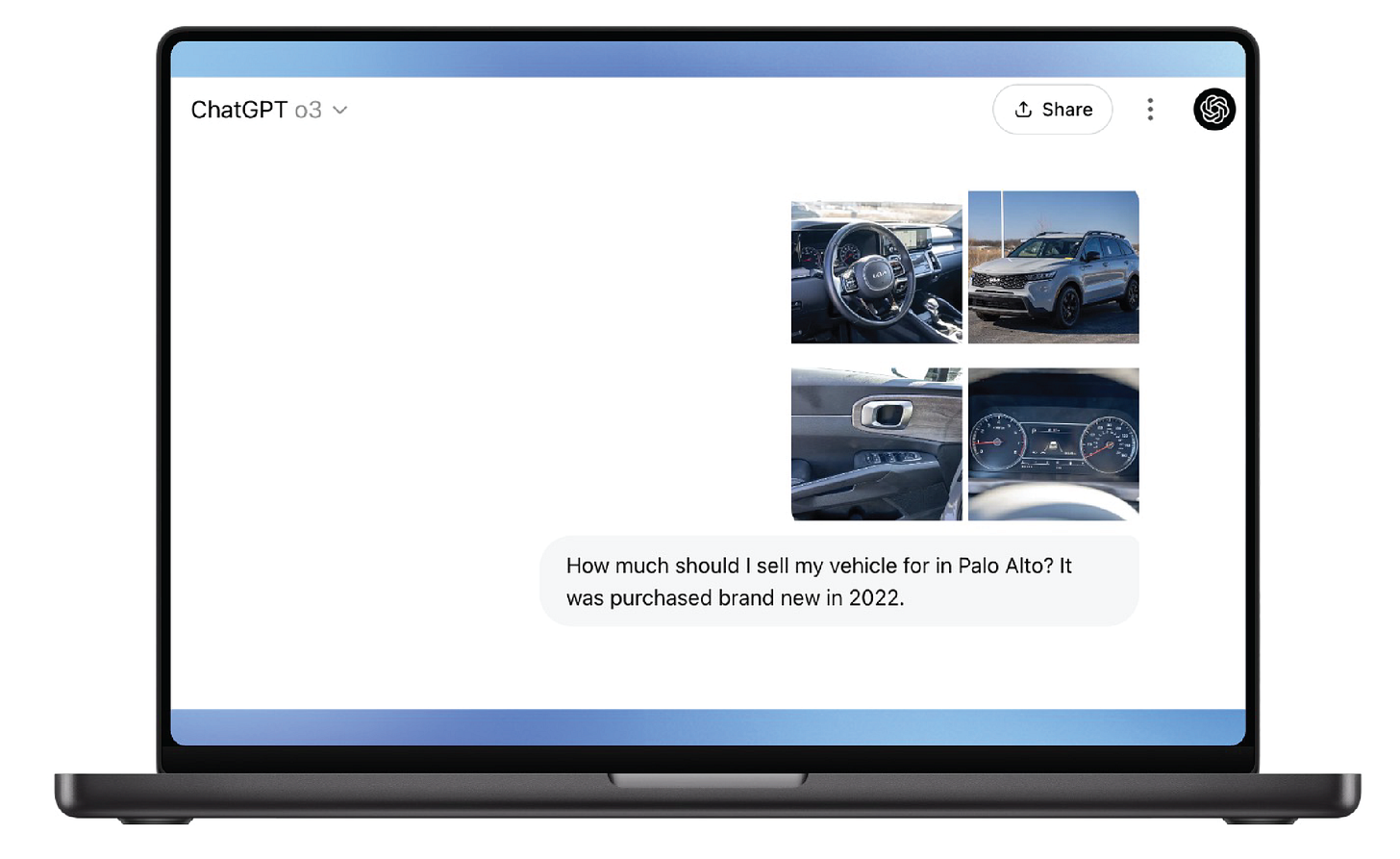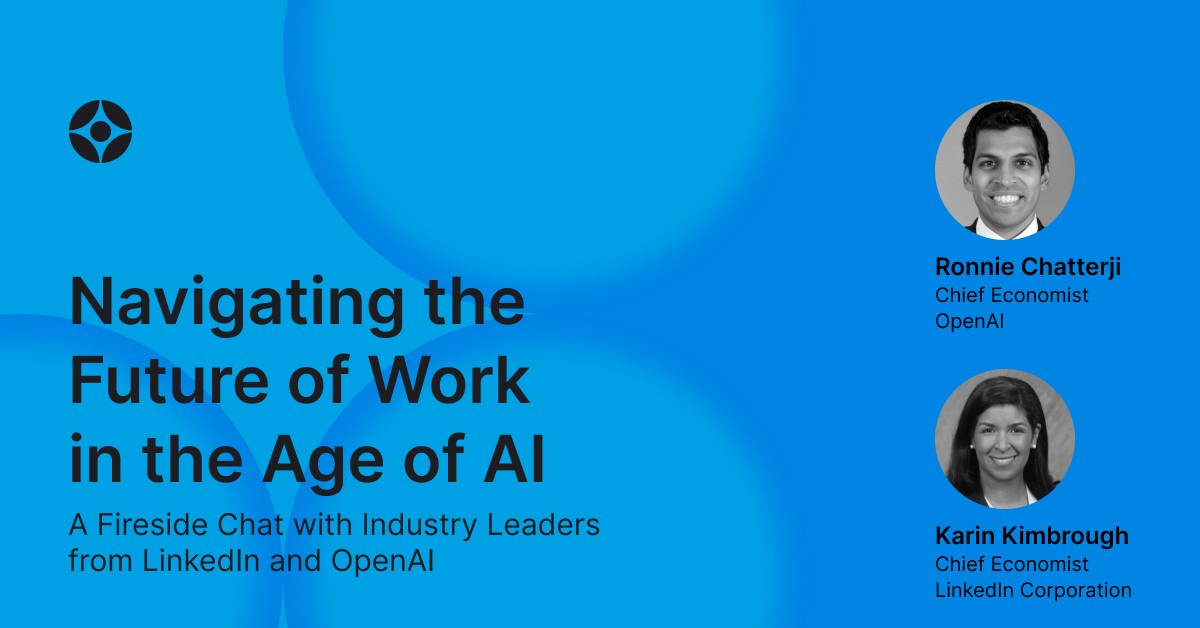Hi
Welcome (back) to The Prompt. AI isn’t well understood, but we learn a lot in our work that can help. In this newsletter, we share some of those learnings with you. If you find it useful, make sure you’re signed up for the next one.
[News of day] Beyond the screen
OpenAI just put our creative direction in the hands of the designer of the most iconic tech product of the past 50 years. You may not know Jony Ive's name, but odds are you've got his work in your pocket. Most Americans own smartphones, and most of those are iPhones. Through his years at Apple, Jony has done more to create the look and feel of American innovation than any other designer working today.
So what does this tie-up mean? While we’re not sharing product details just yet, one thing we’re sure about is that this will transform what generative AI looks like to you, and how you experience it.
Right now, you access ChatGPT on your phone, laptop or desktop. With Jony’s creative leadership, AI will look different than it does now. Our CEO and co-founder Sam Altman talks of “creating new kinds of computers and the opportunity to reimagine what it means to use one.” Another tea leaf: Sam recently wrote that, by 2027, “AI-powered robotics could push AI-driven productivity gains into the physical world, handling routine tasks so people can spend more time on the work and activities they enjoy.”
The story of AI is the next chapter in the story of American innovation. Hundreds of millions of people already are using it. ChatGPT is arguably the fastest-scaling consumer product in history. After launching in November 2022, it reached 1 million users in five days; 100 million users in two months; and 500 million in two in a half years.
Our research tells us that people are eager to know what their future with AI looks like. About time to start showing them.
Simple ChatGPT prompts for this item:
What is the most iconic technology product of the last 50 years?
What is Apple's smartphone market share in the US?
[Data] Bridging the political divide
Support for AI is bipartisan. OK, roll your eyes – we’ve seen this movie before with previous innovations.
Unless we haven’t. Here are a few dynamics that may make this tech/this time different – and if we wind up being wrong, we’ll say so:
The bonkers scaling – i.e., too many Americans are already using AI for it to become politicized. As usual, younger users are leading the way; most ChatGPT users are under age 35.
Repeated, prominent recognition of AI as a strategic national imperative, including by President Trump and his Administration. There’s bipartisan agreement about the need for continued American leadership on AI in the face of a fast-oncoming People’s Republic of China.
It’s not social media (more on that below).
In a recent survey (Panterra, May 6-7, 1,590 US adults, +/- 4%), 54% of Republicans said they view AI favorably; 27% view it unfavorably. Among Democrats, AI’s score is 47% favorable, 33% unfavorable.
Dig a layer deeper into political ideology and we do see some differences. While self-identified conservatives and America First voters hang together, self-identified progressives are more down on AI than liberals.
[Data] Feeling OK about this
But it’s on us in the AI sector to keep it up:
Question: For each of the following individuals and organizations, please indicate whether you have a favorable or unfavorable opinion of them.
KAConsulting, LLC nationwide telephone survey among 1,200 registered voters, with oversample of 300 Trump voters (N=814 2024 Trump voters), March 15-20, 2025.
[AI Economics] The cost of AI is falling fast
OpenAI’s Economic Research team thinks a lot about how AI compares to previous technological revolutions, and in turn, what that might tell us about AI’s effects on the economy. While there are many parallels, the AI revolution is, to date, happening much faster than other changes because of: 1) falling costs to operate AI systems; 2) rapidly expanding AI tool capabilities; and 3) the convenience of using AI models simply by typing a prompt into a search bar.
One of the core measurements of costs that we look at in the AI industry is the cost to process “tokens” – the smallest units of data that make up the building blocks of AI, like a short word or a punctuation mark. Over just the past two years, we’ve seen a more than 99% decrease in these costs for some use cases. The cost to process 1 million tokens, our standard unit of measure, has fallen from $60 for GPT-4 in 2023 to $0.12 for GPT-4.1 nano in early 2025. That’s a remarkable decrease as companies work to become more efficient. These lower costs not only make AI more accessible to a wider range of users, especially internationally, but also mean that AI increasingly makes financial sense across a wider range of use cases – OpenAI Chief Economist Ronnie Chatterji
[Prompt] Dude, how much is my car worth?
Selling your car can be frustrating, especially when it comes to knowing the car’s true value. You can scour the internet, talk to friends, consult the Kelley Blue Book – or instead, take four photos of your car and ask ChatGPT’s o3 reasoning model to give you a suggested price. Give it a try:
[About] OpenAI Forum
Explore past and upcoming programming by and for our community of more than 30,000 AI experts and enthusiasts from across tech, science, medicine, education and government, among other fields.
[About] OpenAI Academy
Prompt engineering – which is just constructing the most effective prompts for your purposes, no engineering expertise required! – is the most popular course we offer through OpenAI Academy, OpenAI’s free online and in-person AI literacy trainings for beginners through experts.
OpenAI has called for a nationwide AI education strategy – rooted in local communities in partnership with American companies – to help our current workforce and students become AI-ready, bolster the economy, and secure America’s continued leadership on innovation.
4:00 PM - 5:00 PM, May 22 EDT
[Events]
May 22: OpenAI Academy: Introduction to ChatGPT
May 22: OpenAI Academy: Writing in the Age of AI
May 29: OpenAI Academy: AI in Action: Practical Uses for Work, Learning and Life
June 3: OpenAI Academy: Conversational AI for Business Automation
June 4: OpenAI Forum’s Navigating the Future of Work in the Age of AI, with LinkedIn Chief Economist Dr. Karin Kimbrough and OpenAI Chief Economist Ronnie Chatterji



















ok cool, now do ai for democracies
Judging by Russia's success at using Facebook to polarize and split the Americans encouraging them to self-destruct I have no faith in Altman or open ai. None. However, it's dangerous out there. take this.
https://www.amazon.com/Ukraines-War-Strategies-Preventing-Deterrence-ebook/dp/B0D9C5MKQ7
(in other words: if you fuck it up this is the result)